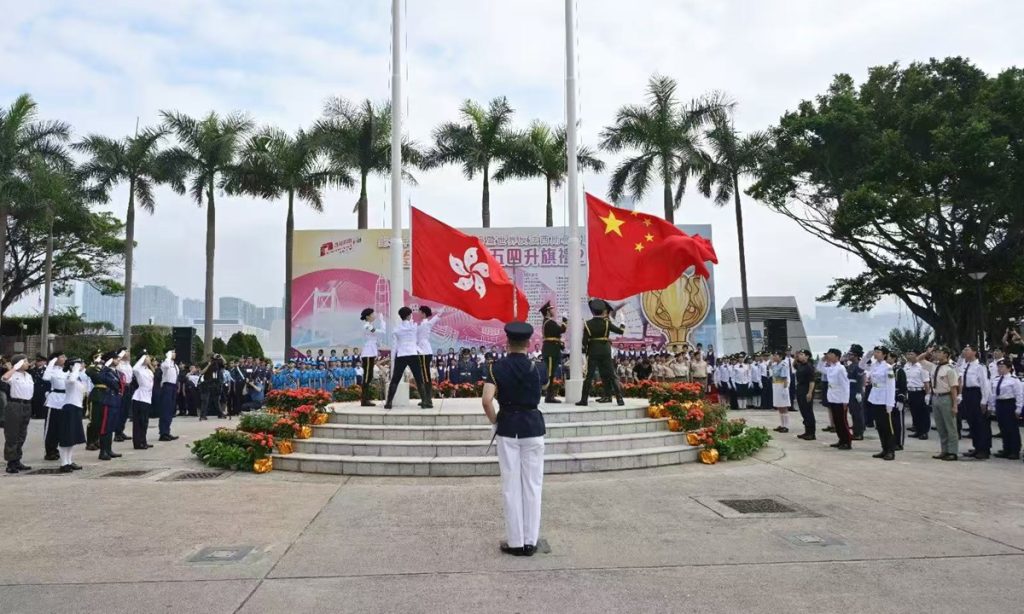HK educator expresses support for city's primary school humanities curriculum guide aimed at cultivating patriotism

Following the release of a primary school humanities curriculum guide by Hong Kong's education bureau, which aims to systematically cultivating students' national consciousness, a Hong Kong educator told the Global Times on Wednesday that he strongly supports these curriculum guidelines, especially the focus on national geography and famous historical sites.
The Education Bureau of the Hong Kong Special Administrative Region released the guide and support measures on Tuesday, following the earlier release of a Science curriculum guide, according to a report by Takungpao.com on Wednesday.
This guide aims to systematically cultivate students' sense of national identity, patriotism and emotional connection to the nation from an early age through various topics, according to the report.
The curriculum covers six areas: "Health and Living," "Environment and Living," "Financial Management and Economy," "Community and Citizenship," "Our Country and Me" and "The World and Me."
Strengthening national education is one of the key focuses of the primary humanities curriculum. Therefore, the curriculum has been enriched with elements of Chinese culture, national history, national geography and national development, according to the report.
For example, the content of "Environment and Living" covers the national territory, geographical features and famous scenic spots, the natural environment of the country and achievements in environmental protection.
"Our Country and Me" includes the development of national history and historical figures, the characteristics and inheritance of Chinese culture, and the modern development of the country to cultivate students' national identity and their willingness to take on the responsibility of inheriting Chinese culture.
Nicholas Muk Ka-chun, a secondary school teacher in Hong Kong, told the Global Times on Wednesday that he strongly supports this curriculum guide, especially the section focusing on educating students about national geography and famous historical sites.
In his nearly 10 years of teaching, Muk has found that many local students, such as those who have never had the experience of studying in the mainland, have no understanding of the nation's geography. For example, they can't distinguish between simple administrative concepts such as provinces and cities, and they don't even know what the provincial capitals are.
"As citizens, basic national geographical concepts should be learned from a young age," he said.
In the past, primary education's humanities courses in Hong Kong mainly focused on the transmission of knowledge, with patriotism education being largely overlooked, lawmaker Lawrence Tang Fei told the Global Times. Even when some courses dealt with national education, they were often lacking in emotional cultivation and the shaping of values.
The approach has been improved now, Tang noted. The new curriculum includes more national geography content, enabling children to better understand the actual situation of the country. "This is not just about imparting knowledge, but more importantly, it is about cultivating children's emotional identification with the nation and ethnicity based on this knowledge."
The EDB has adopted a "multi-pronged and co-ordinated" approach that includes activities inside and outside the classroom to strengthen students' understanding of Chinese culture, the Constitution and the Basic Law, and their awareness of abiding by the law in promoting patriotic education, an EDB spokesman said in response to media enquiries about safeguarding national security on Tuesday.
The EDB has issued detailed administrative and educational guidelines to schools, requiring them to establish school-based mechanisms and formulate appropriate measures according to their own circumstances and needs to implement various tasks related to safeguarding national security and national security education.
Schools have the responsibility to play a good gate-keeper role and to enhance the sensitivity of teachers and students toward national security, according to the response.